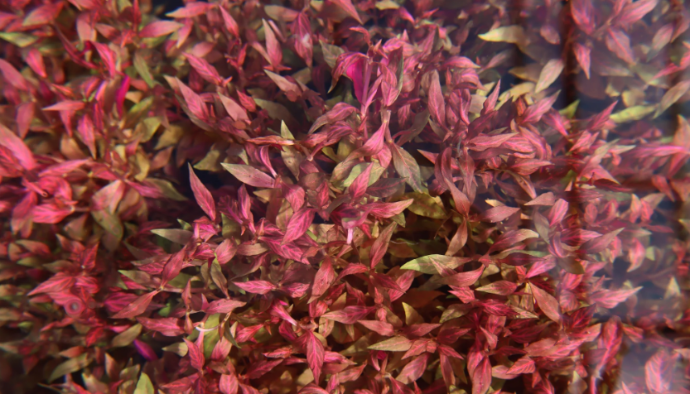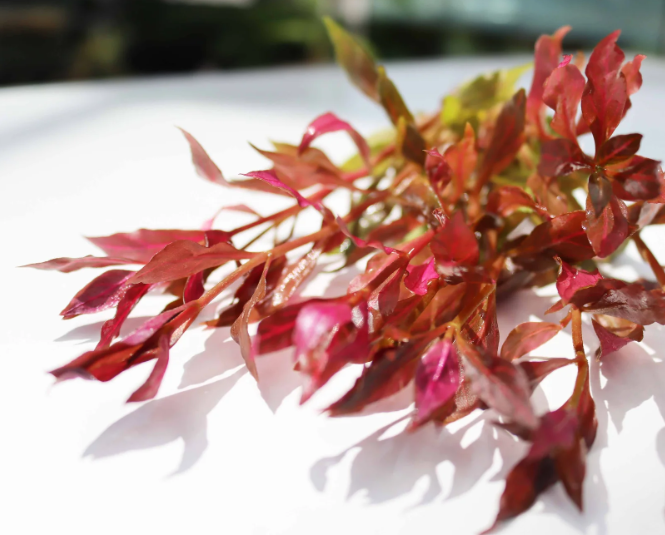Alternathera Variegated Plant
| Alternanthera Variegated is a fast-growing groundcover plant that thrives in partial shade, requires moderate moisture, and has no edible or medicinal properties. |

Habit
Groundcover
Height
Short
Growth
Fast
Soil
Well-drained
Shade
Partial
Moisture
Moderate
Edible
No
Medicinal
No
Origin
South America
Climatic Condition
Tropical ,humid
Temperature (°)
20-30
Humidity (%)
60-80%
Potting media
Peat+Perlite
Fertilizers
Balanced NPK(10:10:10)
Watering
Keep Moist
Plant Weight
100-150 g
Flowering Time
Summer to Fall
Soil Ph level
6.0-7.0
Water Ph level
6.0-7.5
Soil EC
1-2 dS/m
Yield Per Plant
Ornamental
NPK ratio
10:10:10
life Span
1-2 yrs
Health Benefits
Suggested Grow Media or Potting Mix ?
| 40% peat moss, 30% perlite, 30% compost |
Suggested Fertigation/Fertilizers
Apply monthly with liquid organic fertilizer
Common Diseases and Remedies
Leaf Spot, Root Rot, Powdery Mildew, Aphids, Mealybugs.
Yellowing, browning edges, white fungal coating.
Copper-based fungicides, systemic insecticides.
HEALTH BENEFITS
Alternanthera variegata, often called "Joseph's Coat," is a colorful ornamental plant that’s sometimes used in traditional medicine, particularly in regions where it's found naturally. While it’s primarily known for its decorative value, it has been reported in some cultures to offer certain health benefits, though scientific evidence is limited. Here are some potential benefits that have been associated with it:
- Anti-inflammatory Properties: Some studies suggest that compounds in Alternanthera variegata may have anti-inflammatory effects, which could help in reducing swelling and pain, particularly in conditions like arthritis.
- Antioxidant Effects: Like many plants, it is believed to have antioxidant properties that help in neutralizing free radicals in the body, potentially reducing oxidative stress and supporting overall health.
- Wound Healing: Traditionally, it has been used in some cultures to help with the healing of minor wounds and cuts, likely due to its anti-inflammatory and antimicrobial properties.
- Digestive Health: In some folk medicine practices, the plant is used to aid in digestion and to treat stomach-related issues, although there is limited scientific backing for this use.
- Skin Health: The leaves of the plant are sometimes applied topically for skin conditions such as rashes, inflammation, or minor burns, as it’s thought to have soothing properties.
It’s important to note that while these benefits are claimed in traditional medicine, there is not extensive scientific research to back up all of them. If you plan to use Alternanthera variegata for health purposes, it's a good idea to consult with a healthcare professional.

